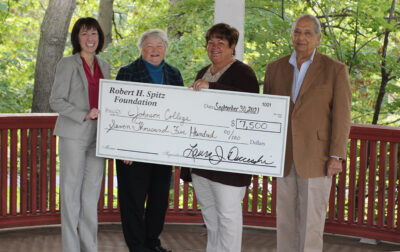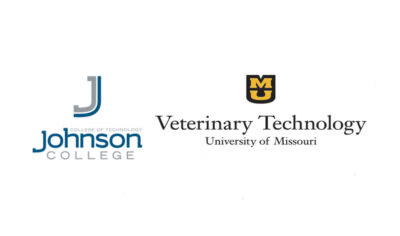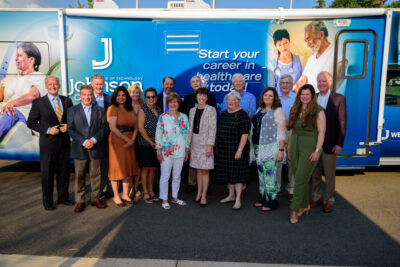Johnson College has been awarded a $7,500 grant from the Robert H. Spitz Foundation, managed by the Scranton Area Community Foundation. This grant will support the College’s Animal Care Clinic and pet owners in our community.
Johnson College will purchase medical equipment that will help enhance the safety and comfort of patients receiving surgical care. The grant will give Johnson College Veterinary Nursing Program students valuable clinical experience preparing them to enter into the workforce or advance their careers.
As many people struggle to feed their families every week, family pets, while loved dearly, are not always updated on vaccines and spay/neuter procedures until finances are available. This grant will help these families take proper care of and responsibility for their pets by providing up to 20 reduced-cost spay/neuter surgeries for qualifying low-income families. The grant will also provide low-cost rabies vaccines.
Johnson College’s Veterinary Nursing Program prepares students to join an animal care team as entry-level technicians. Their tasks can include collecting samples, performing lab tests, taking radiographs, preparing the surgical suite, assisting in surgery, monitoring anesthesia, and providing general nursing care to patients. The American Veterinary Medical Association (AVMA) accredits the program. Students become Certified Veterinary Technicians upon passing the Veterinary Technician National Exam.
“Through this grant, we are excited to give low-income pet-owning families peace of mind that their pet is cared for without incurring financial hardships,” said Dr. Katie Pittelli, President & CEO of Johnson College. “Equipment purchased will help our Veterinary Nursing Program students with the hands-on training they need to pass their national exams and enter the workforce.”
PHOTO CAPTION: Johnson College has been awarded a $7,500 grant from the Robert H. Spitz Foundation, managed by the Scranton Area Community Foundation. This grant will support the College’s Animal Care Clinic and pet owners in our community. Pictured left to right: Dr. Katie Pittelli, President & CEO, Johnson College, Karen Baker, Sr. Director of College Advancement, Johnson College, Cathy Fitzpatrick, Grants and Scholarships Manager, The Scranton Area Community Foundation, and Jack Nogi, Trustee, Robert H. Spitz Foundation.





